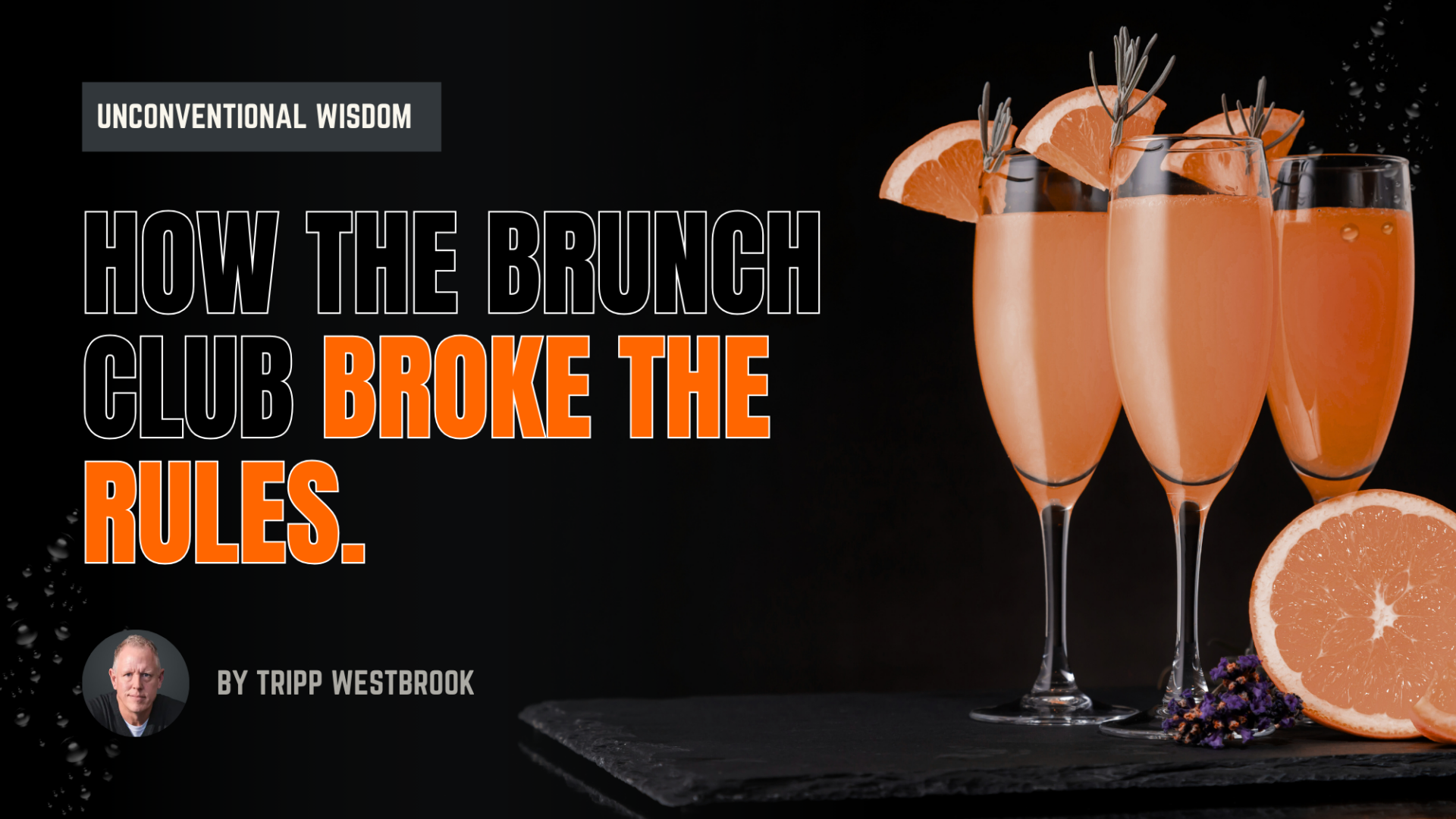It’s all sunny side up for the chains that flipped industry logic by closing early.
The Toasted Yolk put a bar in the middle of the dining room. Eggslut built a cult following with just six sandwich variations and its signature dish. Hash Kitchen and Snooze Eatery turned daytime service into a boozy, high-energy party. None of this should work: conventional wisdom suggests restaurants should maximize hours and diversify menus. But each of these brands broke from restaurant norms and turned those breaks into business advantages.
For decades, brunch was the awkward stepchild of restaurant meals. But the latest industry stats show Saturday breakfast transactions are up 6% year-over-year, and weekend brunch offers higher margins than any other day part. Apparently, brunch is the new dinner. What’s going on?
Instead of leaving money on the table, the chains leading this growth are succeeding by making day trading their strength. Here are four that are creating something brand new:
The Toasted Yolk
As Chris Milton , CEO of The Toasted Yolk Cafe , says, “brunch means different things to different people.”
People use it to reconnect, decompress, gossip, and signal belonging more than to just eat. After all, it was the boozy brunch that gave diners permission to drink during the day and gave birth to the “hair of the dog” Bloody Mary and mimosa.
That’s why the Texas-based chain’s decision to position the bar at the center of every restaurant was such a smart move. It looks counterintuitive when most competitors rely on service bars tucked away from diners. But this bold departure works because it creates the vibe that says brunch can be both a gathering and event. Turns out, Toasted Yolk was ahead of the curve.
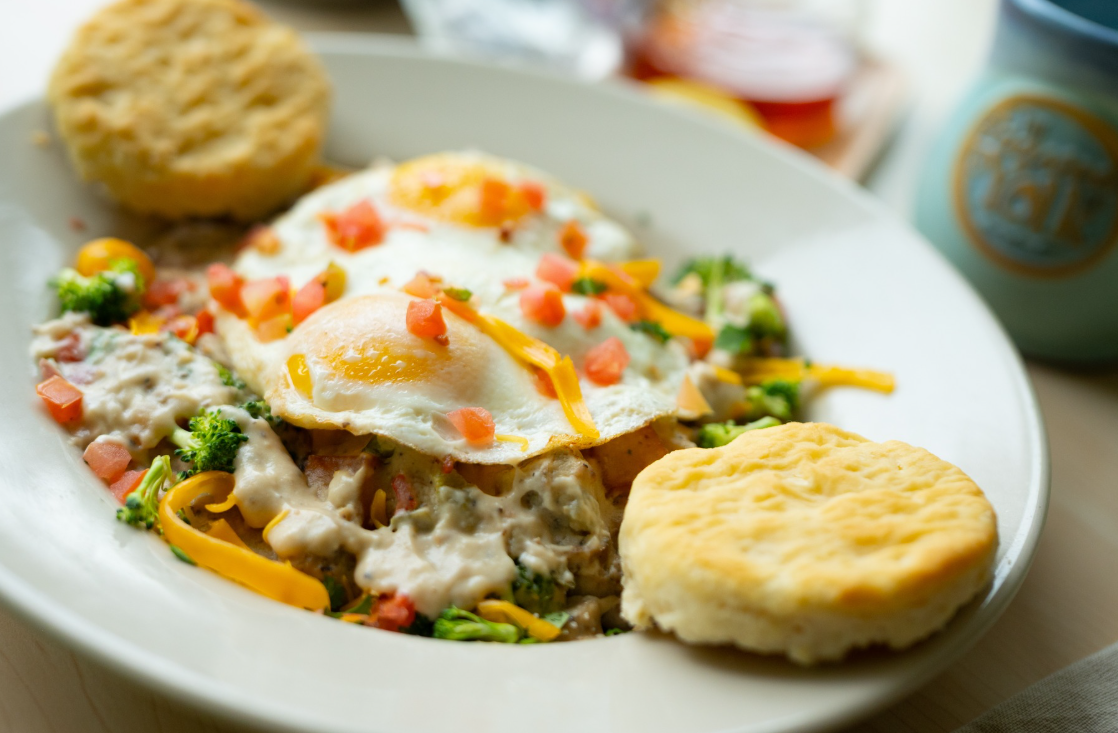
With remote work now blurring the boundaries between weekdays and the weekend, the brunch boom has become as much about timing as the food. Gen Z spends less dining out compared to Millennials, but eats out more frequently. They are rejecting traditional eating schedules in favor of experiences.
The Toasted Yolk’s latest prototype doubles down on the concept with open-air bars that flow directly to patios, creating spaces that work equally well for friend groups drinking cocktails and families with kids.
The name? The signature dish—two slices of grilled sourdough with an egg in the center served with breakfast meats—is an Insta-worthy symbol of the brand’s personality.
Eggslut
Over 10% of all dining dollars are spent from 8 a.m. to 1 p.m on Saturdays. With brunch eventually becoming a mainstream social ritual, Alvin Cailan built a global brand by ignoring the conventional pull to diversify his menu. Instead, he hyper-focused on the one ingredient everyone else treats as a side dish or filler.
Eggslut operates 8am-2pm daily, hitting the brunch sweet spot. The menu has six sandwich variations centered around the egg. That’s it. No pancakes, no waffles, no avocado toast. The chain’s signature dish is a single coddled egg with a dollop of potato puree in a jar, obsessively perfected with European techniques.
When he hatched the concept, Cailan had six months of savings and a simple strategy: “cause some type of ruckus.” It started with the name, based on foodie slang coined by Anthony Bourdain for people who put eggs on everything during an episode of No Reservations in 2009. Cailan was one himself.
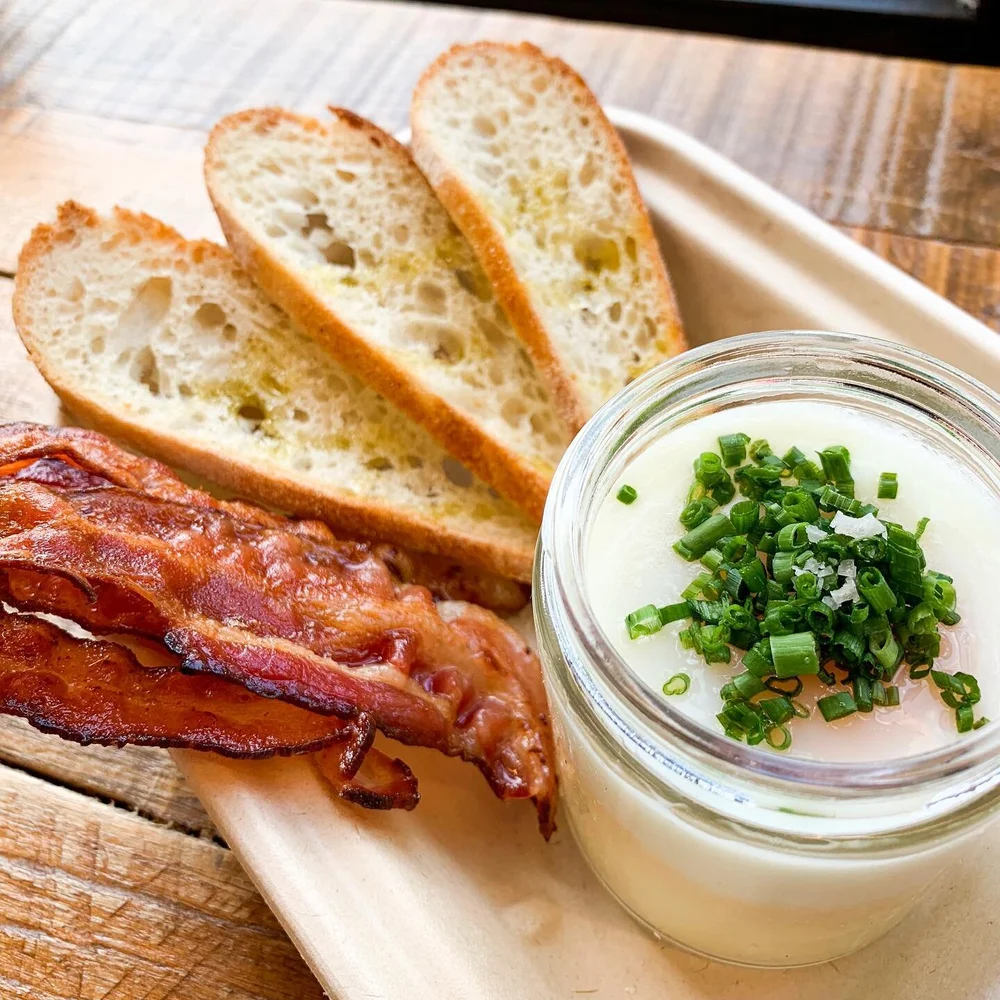
The turning point came when food critic Ruth Reichl happened by Cailan’s first brick-and-mortar eatery in LA’s Grand Central Market. She ended up tweeting about the coddled egg, called the “Slut,” and his food truck days were over.
There’s no denying the power and draw of a provocative name (looking at you Liquid Death), but Australia was not so amused, banning Eggslut from opening there. Thirteen years later, however, a handful of US locations have become pilgrimage sites. And Eggslut now has a footprint in London, Kuwait, Singapore, and Tokyo.
When Japan—a country obsessed with perfecting single ingredients—embraces your egg concept, you’ve done something right.
Snooze Eatery
Before mornings became their thing, co-founders Jon Schlegel and Adam Schlegel opened their first Snooze an A.M. Eatery location with a late-night concept, serving the after-hours crowd from 2 a.m. The plan may have been quickly scrapped, but they kept the cocktails, flipping the script on the conventional wisdom that alcohol doesn’t belong at the breakfast table.
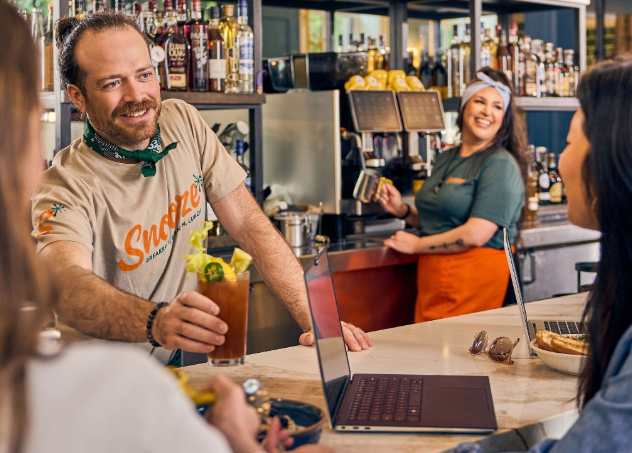
Snooze refocused on breakfast and brunch, keeping hours strictly morning to early afternoon, and embraced a full bar. That pivot became the foundation of their branding: playful, social, and experimental.
Now, even CEO David Birzon gets surprised when he walks into a Snooze at 10 a.m. and finds it packed full of drinkers. “The world is changing ... Doesn’t anyone work? What do people do?” he told Forbes with what seemed like happy befuddlement.
From Pineapple Upside Down Pancakes to unexpected Benedict combos, every dish is a twist on a classic. The loud music, high energy, and edgy staff are all part of the vibe designed to have young patrons put down their phones and engage with the performance art of the space and with each other.
It’s obviously working. With 69 locations across 10 states, including Texas, Colorado, Arizona, and California, Snooze continues to expand strategically. It’s called doing one thing, and doing it extremely well.
Hash Kitchen
The timing is perfect for Hash Kitchen’s nightclub-meets-breakfast concept. While most breakfast spots keep things calm and quiet, Joey Maggiore built Hash Kitchen around a simple idea: “We wanted to make it nostalgic and fun.”
That looks like disco balls hanging over your eggs Benedict and DJ Iceman spinning tracks while you wait for your table. In other words, loud, flashy, and unapologetic—like the “Brunch King” himself.
Dialing up the volume works because remote work has created a flexible dining crowd ready to party at 10 a.m. instead of 10 p.m.
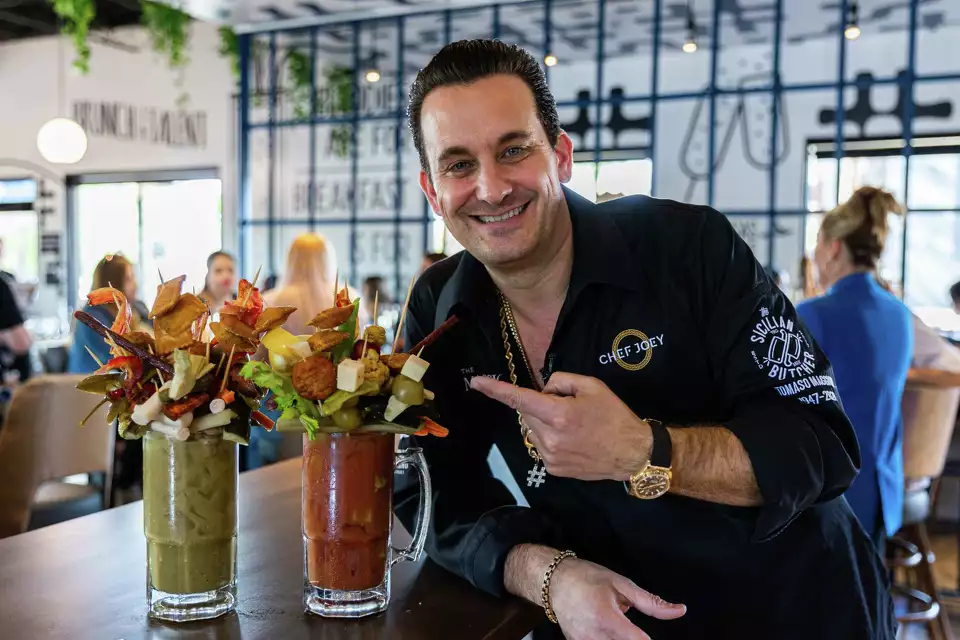
Customers also build their own Bloody Marys from 50+ toppings, servers use blow torches on s’mores French toast table side, and there’s literally a “shimmering gold wall” designed for Instagram posts.
Hash Kitchen’s 10 locations across Arizona, Texas, and Utah (due to expand to 14 this year) still close at 2-3 p.m. Hash Kitchen has figured out that giving people something to post about is worth its weight in gold.
The Takeaway
Each of these brands found success by going in a different direction. They chose to set boundaries, rather than trying to serve every meal and every customer.
Maggiore, a maximalist in execution, constrained himself to daytime dining rather than trying to be a 24-hour entertainment venue. The Toasted Yolk Cafe flipped the traditional restaurant layout, and in doing so, redefined brunch as more of a social event than just a meal.
Meanwhile, Eggslut took a single ingredient, gave it a provocative name, and built a global brand around the power of focus. Snooze scrapped its original late-night concept, leaned into morning hours, and found a surprising audience of 10 a.m. cocktail drinkers.
In an industry obsessed with more, these brands are laser-focused on doing fewer things better. They’re not stretching to cover every daypart. They’re not trying to out-Denny Denny’s. They’re narrowing in, owning their lane, and turning limitations into a compelling, differentiated brand strategy.
The unconventional wisdom? Constraint doesn’t have to mean sacrifice. It can actually be a powerful advantage.

